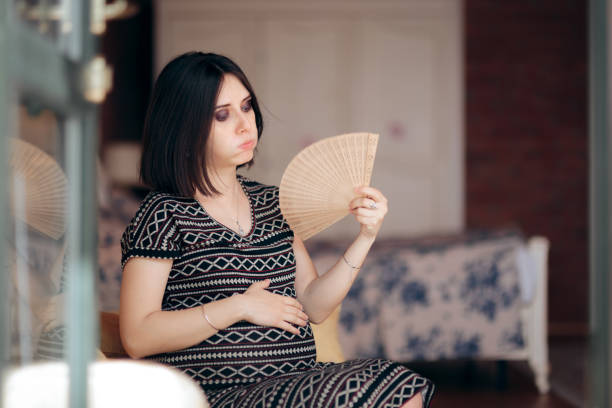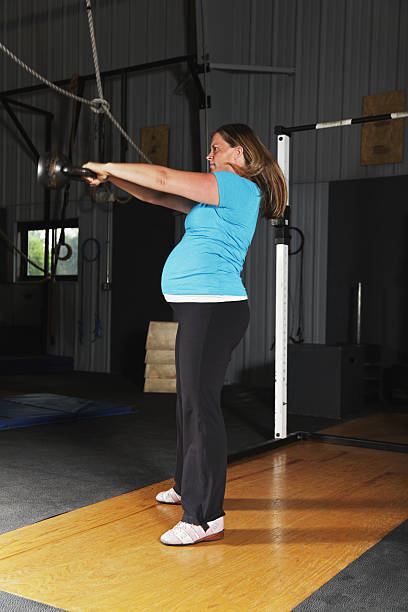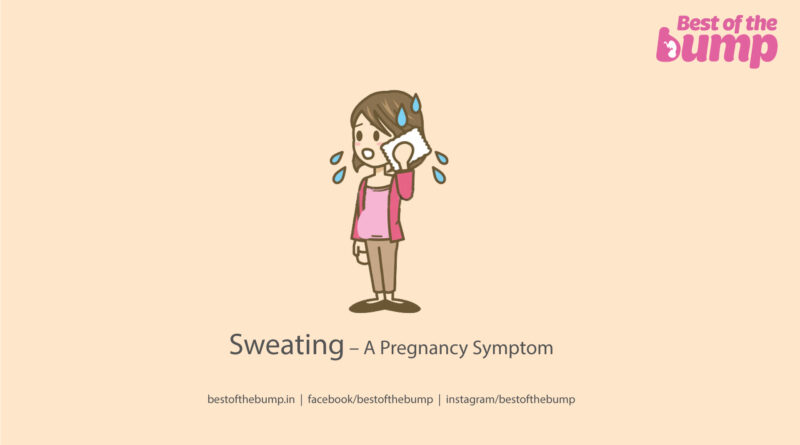Sweating – A Pregnancy Symptom
Pregnancy is a beautiful and transformative journey for many women, but it also comes with its fair share of discomforts and changes. One of the common complaints during pregnancy is excessive sweating, even when the thermostat is turned down. While it can be bothersome, sweating during pregnancy is generally considered normal and often attributed to hormonal shifts and increased blood flow. In this comprehensive guide, we will explore the causes of sweating in pregnancy, how to manage it, and provide tips to help pregnant women stay comfortable.
Causes of Sweating in Pregnancy
Hormonal Changes:

Hormones play a vital role in pregnancy, and they can have a significant impact on your body’s temperature regulation. During pregnancy, the levels of estrogen and progesterone rise significantly, which can lead to an increase in sweating. These hormonal shifts can confuse the hypothalamus, the part of the brain that regulates body temperature, making it perceive heat when it’s not actually present. As a result, the body’s sweating reflex is triggered to cool down, leading to excessive sweating.
Increased Blood Flow:
Pregnancy causes an increase in blood volume to support the growing fetus. This increased circulation can also contribute to feeling warmer and sweating more. The body’s natural response to regulate temperature is to release sweat.
Metabolic Changes:
The metabolic rate tends to increase during pregnancy, which can generate additional body heat and contribute to sweating.
Emotional Changes:
Pregnancy can be an emotional rollercoaster due to fluctuating hormone levels. Stress, anxiety, and emotional changes can trigger the body’s stress response, leading to sweating.
Managing Sweating in Pregnancy

While sweating during pregnancy is normal, there are several ways to manage it and stay comfortable:
Stay Hydrated:
Drinking an adequate amount of water is crucial during pregnancy, and it becomes even more important when dealing with excessive sweating. Sweating leads to fluid loss, so it’s essential to replenish the body by staying hydrated. Keep a water bottle with you at all times and drink whenever you feel thirsty. If the weather is warmer or if you’re engaging in physical activity, increase your water intake accordingly. Monitoring the color of your urine can also serve as a good indicator of hydration levels; clear or slightly yellow urine generally suggests proper hydration.
Seek Cooler Environments:
Avoid spending prolonged periods in hot and humid environments. Stay indoors in well-ventilated spaces or places with air conditioning to help regulate your body temperature. If you’re outdoors, try to schedule activities during cooler times of the day, such as mornings or evenings, and take breaks in shaded areas.
Dress Appropriately:
Opt for loose-fitting, breathable clothing made from natural fabrics like cotton. Light-colored clothes are also beneficial as they reflect heat rather than absorbing it. Layering your bed with blankets may not be necessary during pregnancy as it can trap heat, so consider using lighter bedding materials.
Modify Your Exercise Routine:

Regular exercise during pregnancy has numerous benefits, but it’s crucial to adapt your routine to accommodate the changes happening in your body. Engage in low-impact exercises and choose cooler times of the day for physical activity. If it’s hot outside, consider indoor exercise options or swimming, which can help cool your body.
Practice Stress Management:
Emotional changes and increased stress levels can contribute to sweating. Explore relaxation techniques such as prenatal yoga, meditation, deep breathing exercises, or seeking support from a therapist or support group. Managing stress can help alleviate excessive sweating triggered by emotional factors.
Maintain Good Personal Hygiene:
Regularly shower or bathe to keep your skin clean and fresh. Using a mild, gentle cleanser is recommended, as some harsh soaps can strip the skin of its natural oils and exacerbate sweating. After bathing, pat your skin dry instead of rubbing to prevent irritation. Applying an antiperspirant to areas prone to sweating, such as the underarms, can help control excessive perspiration.
Choose Cool Beverages and Foods:

Avoid hot drinks and spicy foods, as they can raise your body temperature and intensify sweating. Opt for cool or room temperature beverages, such as water, herbal teas, or fruit-infused drinks. Similarly, opt for lighter, refreshing meals that won’t generate excess heat in your body.
Use Fans or Cooling Devices:
Place fans strategically in your living space to promote air circulation and create a cooling effect. You can also use cooling towels, gel packs, or misting fans to provide additional relief from heat.
Sleep Comfortably:
Sweating at night can disrupt sleep and contribute to discomfort. Consider using breathable bedding materials, such as cotton sheets, and sleeping on a towel or a moisture-wicking mattress cover to absorb excess sweat. If needed, use a fan or adjust the temperature in your bedroom to create a cooler sleeping environment.




